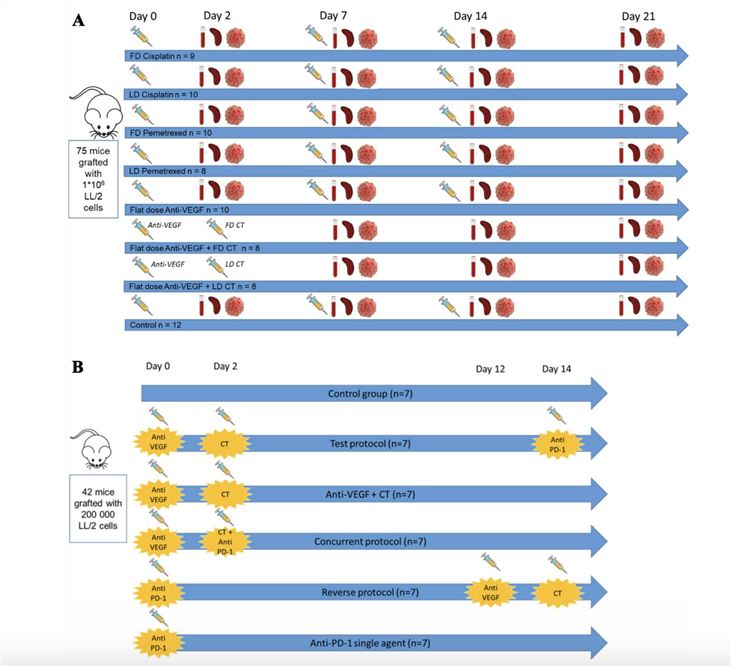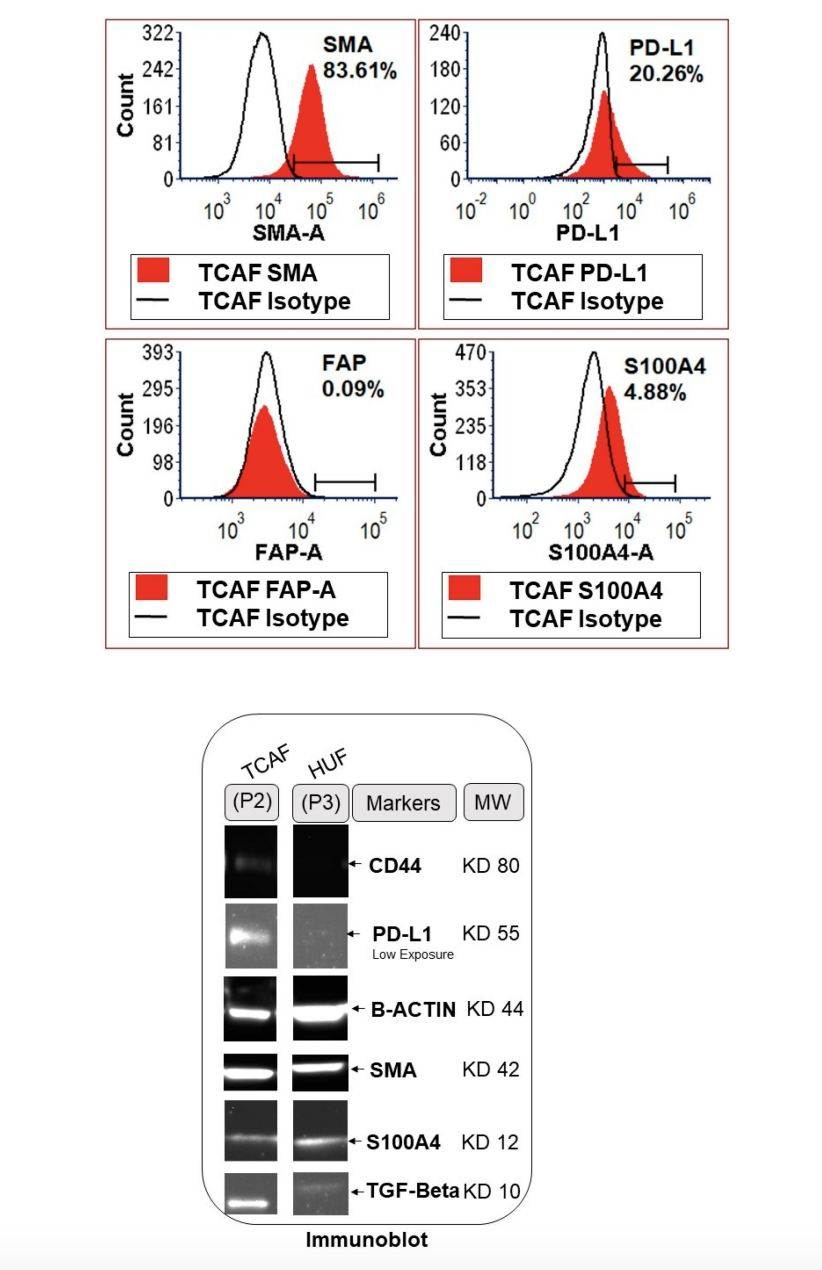In Vivo Modeling Services of Anti-Cancer Resistance
As the battle against cancer continues to evolve, the importance of understanding and overcoming cancer resistance has become a critical focus for researchers and pharmaceutical companies alike. Creative Biolabs presents a novel in vivo model platform to help our customers tackle this complex issue.
Introduction
While treatment strategies have indeed mitigated the consequences of drug resistance, there is still an urgent need to adopt additional methods to combat resistance. Therefore, Creative Biolabs has established a series of in vivo models to overcome drug resistance and identify targets for resistant cancers.
Our models can be used with a variety of tumor types, allowing us to study different aspects of cancer biology, such as tumor heterogeneity assessment, the interactions analysis between these components or tumor cells, potential treatment testing, and therapy response prediction.
 Fig.1 The Overcoming Immuno-resistance by Anti-VEGF/cytotoxics/anti-PD-1 combination Mice model Design.1,3
Fig.1 The Overcoming Immuno-resistance by Anti-VEGF/cytotoxics/anti-PD-1 combination Mice model Design.1,3
Services
Creative Biolabs offers a range of services to meet your needs, including tumor xenograft models, patient-derived xenograft models, and genetically engineered mouse models. Our models are carefully designed to mimic the complexity of human tumors, allowing researchers to test the efficacy of potential therapies in a more accurate and relevant setting.
Tumor xenograft models involve the implantation of human tumor cells into mice to study tumor growth and response to therapies. Genetically engineered mouse models are mice that have been genetically modified to develop specific types of cancer, allowing researchers to study the mechanisms of tumor formation and progression.
In addition to our modeling services, we also offer a range of complementary services to support your research, including tumor characterization, pharmacokinetic and pharmacodynamic analysis, and histopathology services.
Advantages of our in vivo models include:
-
Can be easily replicated and studied in a controlled laboratory setting, allowing for consistent and reliable results.
-
Providing a more realistic and accurate representation of human tumors compared to in vitro models, allows us to further study cancer resistance in a more relevant context.
-
Accounting for the complex tumor microenvironment and its role in cancer drug resistance, providing insights that may not be captured in simpler in vitro models.
-
Allowing for the evaluation of drug efficacy and toxicity in a living organism, providing valuable information on how potential treatments may behave in a clinical setting.
-
Studying the impact of various factors, such as genetic mutations, on cancer resistance, helps clients to better understand the underlying mechanisms of drug resistance.
-
Testing new therapeutic approaches, such as combination therapies or targeted treatments, to overcome cancer resistance and improve therapy outcomes.
 Fig.2 The Protein Expression Testing by Flow Cytometry in the Patient-Derived CAF.2,4
Fig.2 The Protein Expression Testing by Flow Cytometry in the Patient-Derived CAF.2,4
Case study: A Patient-derived Xenograft Model Construction
At Creative Biolabs, several studies have focused on combating cancer resistance through in vivo models, which involve studying tumors within living ororganismsFor example, we have used various strategies such as combining different treatment modalities, developing targeted therapies, and understanding the mechanisms behind drug resistance. In viv,o models have provided important data for overcoming cancer resistance and have the potential to lead to more effective treatments for various cancer types.
Recently, tumor biopsies have been obtained and implanted into immune-deficient mice to establish patient-derived xenograft models that closely mimic the tumor biology process. These models have been treated with a targeted therapy that specifically inhibited the HER2 receptor, a key driver of tumor growth in breast cancer. Treatment with the targeted therapy resulted in significant tumor regression and prolonged survival compared to standard chemotherapy. Further analysis revealed that the targeted therapy effectively inhibited HER2 signaling and downstream pathways, leading to tumor cell death and suppression of resistance mechanisms.
If you are facing challenges in fighting cancer resistance and are looking for a partner to help you navigate this complex landscape, Creative Biolabs invites you to consult with our team. We are here to provide you with the support and resources you need to advance your research and make a meaningful impact in your therapy. Contact us to learn more about our in vivo model design, construction, and validation services.
References
-
Sicard, Guillaume, et al. "Overcoming immuno-resistance by rescheduling anti-VEGF/cytotoxics/anti-PD-1 combination in lung cancer model." Cancer Drug Resistance 7 (2024).
-
Sulaiman, Raed, et al. "Patient-derived primary cancer-associated fibroblasts mediate resistance to anti-angiogenic drug in ovarian cancers." Biomedicines 11.1 (2023): 112.
-
Image retrieved from Figure 1 “Summary of the experimental designs.” Sicard et al., 2024, used under CC BY 4.0 (https://creativecommons.org/licenses/by/4.0/). The title was changed to " The Overcoming Immuno-resistance by Anti-VEGF/cytotoxics/anti-PD-1 combination Mice model Design."
-
Image retrieved from Figure 4 “Expression of proteins for CAF markers in the Patient-Derived primary culture of ovarian CAF established from the representative tumor sample of ovarian cancers.” Sulaiman et al., 2023, used under CC BY 4.0 (https://creativecommons.org/licenses/by/4.0/). The title was changed to " The Protein Expression Testing by Flow Cytometry in the Patient-Derived CAF."
For Research Use Only | Not For Clinical Use


 Fig.1 The Overcoming Immuno-resistance by Anti-VEGF/cytotoxics/anti-PD-1 combination Mice model Design.1,3
Fig.1 The Overcoming Immuno-resistance by Anti-VEGF/cytotoxics/anti-PD-1 combination Mice model Design.1,3
 Fig.2 The Protein Expression Testing by Flow Cytometry in the Patient-Derived CAF.2,4
Fig.2 The Protein Expression Testing by Flow Cytometry in the Patient-Derived CAF.2,4
 Download our brochure
Download our brochure